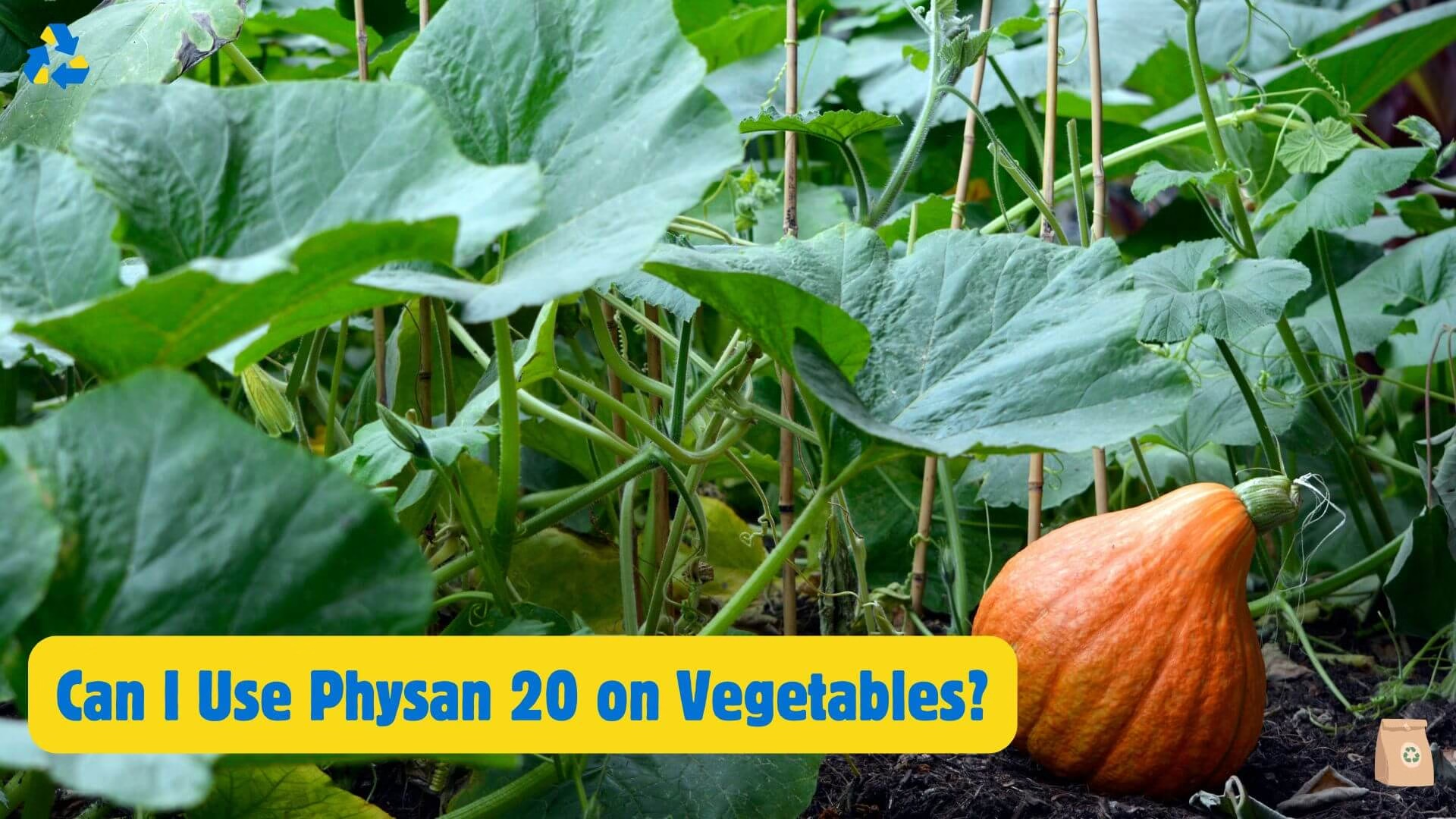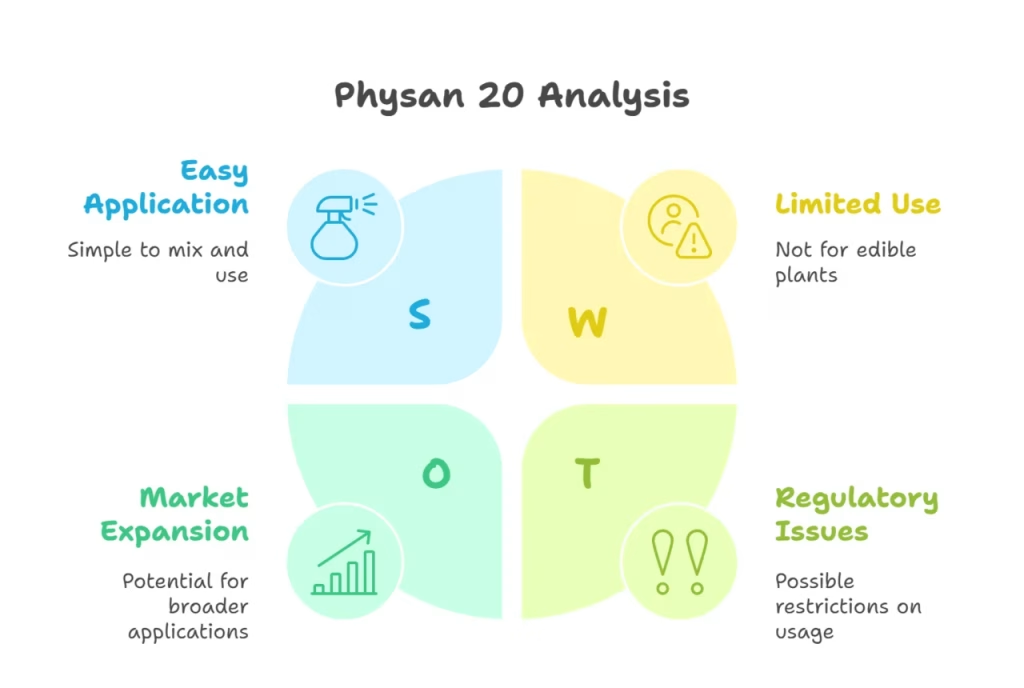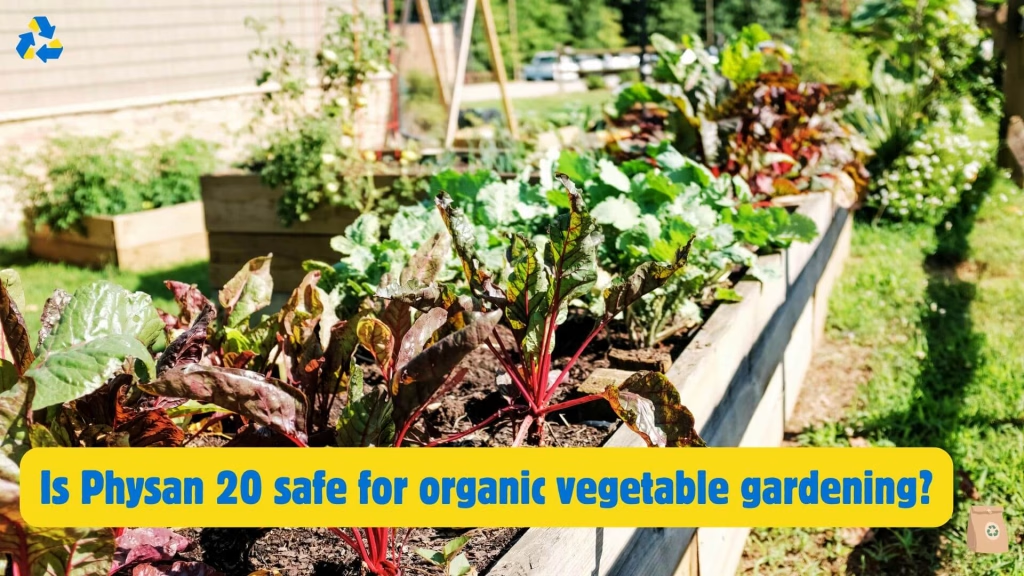
Is Physan 20 safe for vegetable gardening?
If you’re starting seeds or maintaining a garden, you’ve probably heard of Physan 20. It’s often used in greenhouses and indoor grow spaces to keep things clean. But when it comes to vegetables, the question pops up a lot: Is it safe to use Physan 20 on plants you plan to eat?
Here’s the honest, straightforward answer to everything you should know before using it near your crops.
What Is Physan 20?
Physan 20 is a concentrated liquid solution that helps control unwanted growth like mildew, mold, algae, and bacteria. Gardeners use it to clean surfaces, trays, tools, and even some ornamental plants.
It’s:
- Easy to mix and apply (when diluted properly)
- Often used in greenhouses and plant nurseries
- Not intended for direct contact with edible produce
Can You Use It on Vegetables?
No, Physan 20 is not made for direct use on vegetables. The label does not support applying it to any part of a plant that’s grown for food – like leaves, stems, or fruit.
You can still use it in your garden – just not directly on anything you plan to harvest and eat.
✅ Safe Uses of Physan 20 Around Vegetables
| Use Case | Is Physan 20 Safe? | Notes |
| Cleaning seed trays | ✅ Yes | Use diluted solution before planting. Let trays dry completely. |
| Disinfecting garden tools | ✅ Yes | Ideal for shears, pots, and trowels between uses. |
| Spraying on vegetable leaves | ❌ No | Not approved for direct use on edible plant parts. |
| Soil treatment | ❌ No | Not intended for direct application to soil used for growing food. |
| Greenhouse surfaces & benches | ✅ Yes | Great for keeping plant areas clean and free of mold or algae. |
| Hydroponics (with edibles) | ⚠️ Not Recommended | May affect water and plants if not flushed properly. |
| Use on ornamental plants | ✅ Yes | Commonly used on orchids and non-edible plants. |
Safe Ways to Use Physan 20 Around Your Veggie Garden
Here’s where Physan 20 can come in handy – without touching your actual crops:
Sanitizing Tools
Before planting or pruning, use diluted Physan 20 to wipe down shears, trowels, or trays. This helps prevent the spread of plant issues.
Cleaning Seed Trays and Containers
It’s a great way to prep your growing trays or pots before the season starts. Clean, dis’ease-free containers mean hea’lthier starts.
Disinfecting Surfaces
Spray it on workbenches, greenhouse shelves, or anything that holds pots or containers.
Just be sure to rinse any surfaces that might later come into contact with food-producing plants.
⚠️ What You Should Avoid
While Physan 20 has its uses, it’s important to follow best practices:
- Don’t spray it on leaves, stems, or fruit
- Don’t use it in soil that holds food plants
- Avoid using it in hydroponic systems for edible crops
It’s not made for consumption or anything that could directly affect your food plants.
Safer Options for Edible Plants
If you’re looking for safer alternatives to keep your edible plants clean and healthy, here are some great options that can help control-pests, dis’eases, and environmental issues without pressuring your crops:
- Diluted Hydrogen Peroxide: This solution can be used on seed trays and seedlings. It helps with root-he’alth and can address some minor fungal issues. Be sure to dilute it properly (around 3%) to avoid any issues with your plants.
- Neem-Based Products: Neem oil is a natural option that helps control-pests like aphids and spider mites. It also works against certain leaf problems. Since it’s plant-based, it’s safe for edible plants and won’t leave negative residues.
- Baking Soda Sprays: A mild mixture of baking soda and water can work wonders for treating surface-level issues like mildew. This gentle solution is easy to make and safe for most plants when used in moderation.
- Water and Mild Soap (Non-Scented): For general cleaning, mix water with a small amount of mild, unscented soap. This can help remove dirt and pests with ease from the plants.
These simple, natural options are perfect for keeping your edible garden in top shape. Just remember to test any solution on a small area first to ensure it works well with your plants.
🌿Natural Alternatives for Edible Gardens
| Alternative | Best Used For | Food-Safe? |
| Hydrogen peroxide | Seed trays, root care | ✅ Yes |
| Neem-based solutions | Pests and mild fungus on leaves | ✅ Yes |
| Baking soda spray | Powdery mildew on leaves | ✅ Yes |
| Vinegar (diluted) | Cleaning surfaces, pots, and trays | ✅ Yes |
| Soap + water (unscented) | General cleaning of tools and containers | ✅ Yes |
Mixing & Safety Tips (If You Use Physan 20)
If you do use Physan 20 around your garden setup:
- Always follow the dilution guide on the label
- Wear gloves to avoid skin contact
- Allow surfaces to fully dry before planting or touching them
- Keep it stored safely, out of reach from pets or kids
Using it properly means using it indirectly – as a cleaner, not a plant treatment.
Final Word: Is Physan 20 Worth It?
Yes, if you’re using it for what it’s meant for. Physan 20 works well as a cleaning tool for your gardening gear and space. But it’s not something to apply directly to anything you’ll eat.
If you stick to trays, tools, and surfaces and follow the label, you can use it safely. Otherwise, go with natural options that are safe for food plants.
💬 Got Experience with Physan 20?
Have you used Physan 20 in your setup? What worked? What didn’t? Drop a comment and let’s talk gardening.
Quick FAQs
Can Physan 20 be sprayed on vegetable plants?
No. It’s not labeled for direct use on edible crops.
Is Physan 20 safe for garden tools and trays?
Yes. It works well when used as a cleaner on non-living surfaces.
What can I use instead of Physan 20 for vegetables?
Try hydrogen peroxide (diluted), neem-based products, or baking soda solutions.
borshon96
Recommended

9 Effective Tips for Balcony Gardens for Beginners

Best Homemade Fertilizer: Banana Peel for Plants


Philodendron Neon Heartleaf: Your Most Obedient Houseplant



